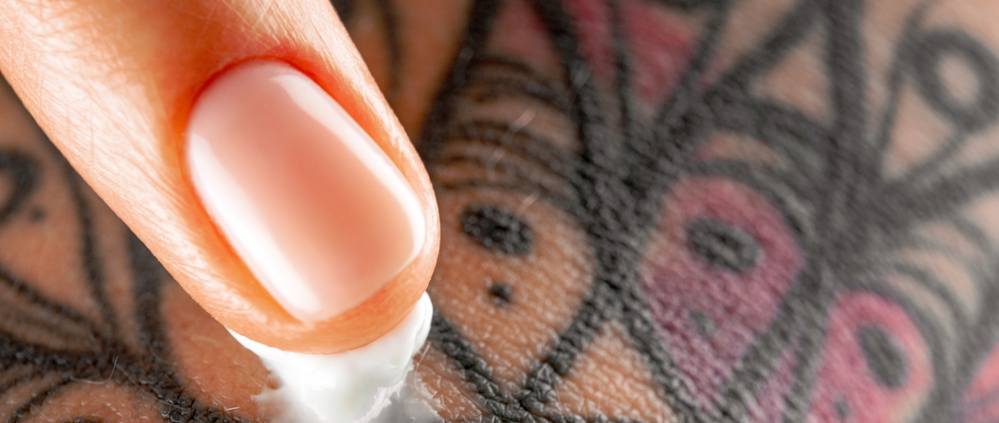Should You Put Coconut Oil on a Tattoo?
Tattoos are not just ink on skin; they’re expressions of art and personal stories etched onto the body. Whether it’s your first tattoo or you’re adding to your collection, proper aftercare is crucial for ensuring that your tattoo heals beautifully and maintains its vibrancy over time. One common question that arises during the aftercare process is whether coconut oil is safe and effective for tattoo healing. There are both benefits and drawbacks to using coconut oil, so let’s discuss.
Key Takeaways
- Coconut oil’s benefits include essential vitamins for skin health and natural moisturizing properties.
- Coconut oil provides vitamins E, K, and C, nourishing and hydrating the skin during the healing process.
- Coconut oil can clog pores and may lead to skin irritation.
What is Coconut Oil?
Coconut oil is a versatile natural oil extracted from the kernel or meat of mature coconuts. It has gained popularity in recent years for its wide range of health and beauty benefits, including moisturizing properties, antioxidant effects, and antibacterial properties. Rich in fatty acids and vitamins, coconut oil is often used in skincare products, hair care treatments, and dietary supplements.
Is Coconut Oil Safe for Your Tattoo?
The safety of coconut oil for tattoo aftercare is a topic of debate among tattoo enthusiasts and professionals. While some swear by its effectiveness in moisturizing and promoting healing, others express concerns about its potential to clog pores and cause irritation. So, is coconut oil safe for your tattoo? Let’s delve into the pros and cons.
What Are The Benefits of Using Coconut Oil?
Coconut oil is undoubtedly healthy is various applications. For those with tattoos, you may enjoy the following benefits when using coconut oil on your skin:
Contains Vitamins for Healthy Skin
Coconut oil is not only a rich source of fatty acids but also contains essential vitamins that are beneficial for skin health. Vitamin E, known for its antioxidant properties, helps protect the skin from environmental damage and promotes overall skin health. Vitamin K aids in the body’s natural blood clotting process, which can be beneficial during the tattoo healing process to minimize bleeding and promote faster healing.
Additionally, vitamin C plays a crucial role in collagen production, supporting the regeneration of damaged tissue and promoting skin elasticity. Together, these vitamins work synergistically to nourish the skin, reduce inflammation, and support the healing of your tattoo, ensuring it heals faster and more effectively.
All-Natural
One of the significant advantages of using coconut oil for tattoo aftercare is its natural composition. Pure coconut oil is free of synthetic fragrances, chemicals, and additives commonly found in commercial skincare products. This makes it a safer option for sensitive skin, as it is less likely to cause allergic reactions or irritation. Unlike some commercial tattoo aftercare products that may contain harsh chemicals or artificial ingredients, coconut oil provides a gentle and natural alternative for moisturizing and protecting your tattoo during the healing process.
Moisturizing
Coconut oil is renowned for its exceptional moisturizing properties, thanks to its high concentration of fatty acids, including lauric acid, capric acid, and caprylic acid. When applied to the skin, coconut oil forms a protective barrier that locks in moisture, preventing dryness and promoting hydration. This is particularly beneficial during the tattoo healing process, as keeping the skin well-moisturized helps prevent itching, flaking, and irritation, which can compromise the healing of your tattoo. Additionally, for older tattoos, regular moisturization with coconut oil can help maintain the vibrancy of the ink and keep the skin looking healthy and supple over time.
What Are The Cons of Using Coconut Oil?
The benefits of coconut oil will aid your skin during the healing process, but what are the drawbacks? Here is a look:
Clogged Pores
Some individuals may experience clogged pores or breakouts when using coconut oil on their tattoos, especially if they have oily or acne-prone skin. The thick consistency of coconut oil can create a barrier on the skin that traps dirt, sweat, and bacteria, leading to skin congestion and breakouts. For this reason, you should not use coconut oil on a tattoo that is still healing.
Risk of Irritation
While coconut oil is generally well-tolerated by most people, some individuals may experience skin irritation or allergic reactions. If you have a known allergy to coconut or coconut-derived products, it’s essential to avoid using coconut oil on your tattoo to prevent adverse reactions.
Lack of Scientific Evidence
While anecdotal evidence and personal testimonials support the use of coconut oil for tattoo aftercare, there is limited scientific research on its effectiveness compared to other tattoo aftercare products. As a result, the efficacy of coconut oil for tattoo healing may vary from person to person. If you wish to try coconut oil for moisturization, consider using only a small amount on a patch of skin that isn’t near your tattoo. Monitor your skin for any adverse reactions. If you seem to tolerate coconut oil well, you can proceed to use it more.
Looking For a Reputable Tattoo Shop in Philadelphia?
Should you use coconut oil on your tattoo? If it is healed, coconut oil can be beneficial, but it is important to consider the drawbacks. If you’re considering getting a new tattoo or need expert aftercare advice, look no further than Oracle Tattoo Gallery in Philadelphia. Our team of talented artists is dedicated to providing top-quality tattoos and personalized customer service. With years of experience and a passion for creativity, we’ll work with you to bring your tattoo vision to life and ensure that your new ink heals beautifully. Contact us today to schedule a consultation.



